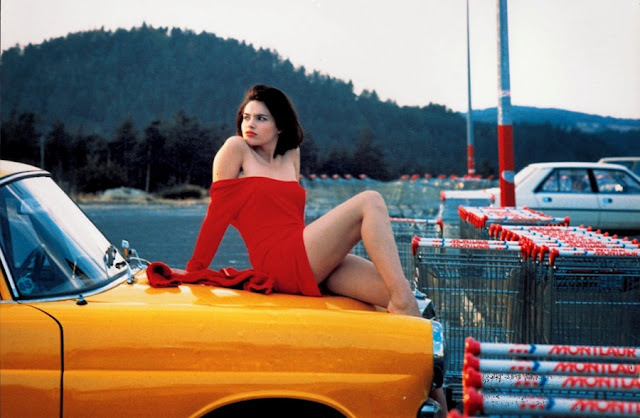Along with Luc Besson and Leos Carax, Jean-Jacques Beineix was a leading representative of French postmodernist film of the 1980s, which critic Raphael Bassan called “Cinema du look” in the late 1980s. And while after the 1980s Besson became arguably the most commercially successful French filmmaker of all time, and Carax a leading art filmmaker and a favorite of critics, Beineix simply disappeared after the incredible success of “Betty Blue”. He made only a few films in the next thirty years that probably no one watched, and in early 2022 he died at the age of 75 after a long illness completely forgotten.
For more than twenty years, French film has been ruled by a new wave, and I guess everyone who started making films there has firmly adhered to the postulates set by Godard, Truffaut and the team in the late 1950s and early 1960s. But in the early 1980s, some new kids showed up and started making movies that were all that new wave work wasn’t. Beiniex’s “Diva” from 1981 was in fact the first film to be classified in “Cinema du look”, and in turn it was a stylized film about young people for young people who, obviously, already had a lot of the same films that were in France has already been filmed on the spur of the moment. And “Betty Blue” (I watched the director’s 185-minute version that came out in 2000 and can be found online, while the original 1986 version lasts an hour less) is a real example of that film rebellion.
Probably the most famous film critic of all time Roger Ebert wrote for “Betty Blue” that it is “a film about Beatrice Dalle’s tits and ass, and everything else exists just to fill the time”, but this rather explicit and free romantic drama is not only was one of the most commercially successful films of the year, and has already reached the Oscar nomination for Best Foreign Language Film. It is a story about two young people in love to the ears, which is quite explicit. We see Betty (Dalle) and Zorga (Jean-Hugues Anglade) in action in bed under a replica of the Mona Lisa, while Zorg, also the film’s narrator, reveals that he has only known Betty for a week and that they make love every night.
Betty will also be moving into Zorg’s house very soon as he does all sorts of work for the guy who owns the entire neighborhood where they live. But when she starts spending more time with Betty and out of bed, she will realize that this 19-year-old girl is completely unrestrained and impossible to control. In fact, as time goes on, it will become clear to us that Betty is a mentally unstable, sick woman who will crash into Zorg’s life like a tornado. After being kicked out of the cottage, Betty and Zorg head to Paris, and when she discovers thousands of pages of manuscripts of a novel Zorg once wrote, she becomes convinced that her sweetheart has written a masterpiece and is a future literary star.
Although she brought complete chaos into his life, Zorg would do anything for Betty, but the question is what can be done at all because her mental state will get worse and worse, until she is completely executed in delusions. And while the younger generation of “Betty Blue” was greeted with enthusiasm and this wild, unbridled romance was a must-read for young people around the world, feminists somewhat lamented in Ebert’s footsteps that the film was pure exploitation and that the only meaning of Dalle’s nudity was instant star, but later failed to justify that status. Interesting how I didn’t find any comment in which anyone complained about Anglade’s nudity being naked for as long as his partner.
Even today, “Betty Blue” has a cult status, and looking at the director’s version of the film from a distance of 35 years, it is clear that it is not as provocative, controversial or empty and meaningless as critics claimed, just as it is not a deep study of mental illness , feminism and artistic freedoms as pointed out by those who liked the film. It is a rebellious drama about two young people who actually have nothing but love, but who don’t really care that they are young proletarians and are convinced that they can do whatever they want. Both visually and narratively it is an extremely interesting film, a completely unbridled romance that constantly dances between comedy and tragedy. Rating 8/10.
MORE MOVIE REVIEWS: LA NUIT AMERICAINE (1973, FRA) Movie review, plot, trailer, rating
